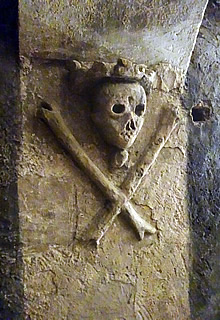


Cagliari is home to an excellent archaeological museum and countless places to enjoy good food and wine.
Related pages:
Alghero & North West
Oristano
Cagliari
Su Nuraxi, Nora, Montessu
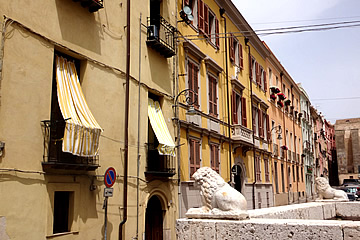

Long the island's capital Cagliari has remnants of two thousand years of history either on the streets or in its museums. The old citadel, now the Castello quarter, is high on a hill with the cathedral and city offices at the summit and surrounded by a defensive wall.
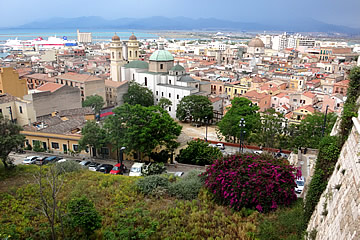
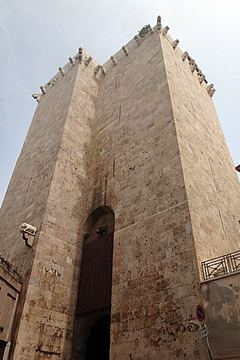
On the west side is the Torre dell'Elefante which was built in 1307 and, like the defensive walls, presents a sheer face to attackers.

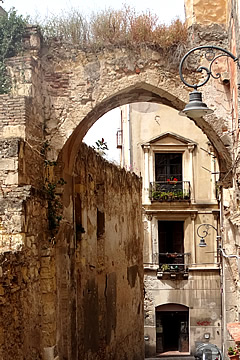
The internal portcullis can still be seen seated in its grooves at the centre of the interior of the gate above the road leading into Castello. A raised, spiked gate is also still in place at the entrance from the lower city. The inward side of the tower is open.
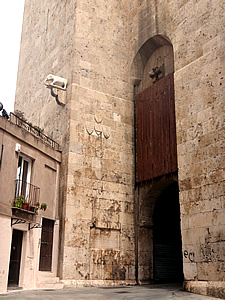


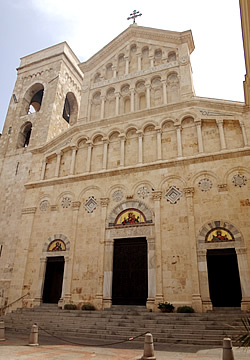
The civic and ecclesiastical buildings sit among a warren of narrow alleyways threading between tall buildings within the walls.
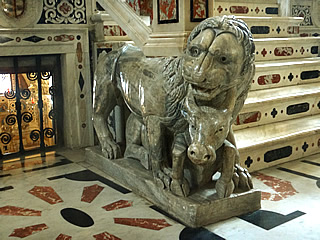
The cathedral was originally built in the thirteenth century but has undergone much remodelling. The facade is a twentieth century take on a typical arcaded Pisan Romanesque style and the interior, a mixture of Gothic and Baroque, does nothing for me at all, though there are some lovely 12th century carved marble lions and an impressive carving of St Michael casting devils into hell.
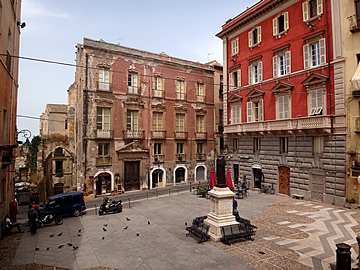
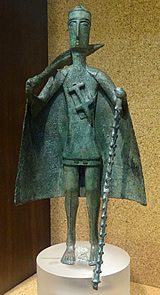
The Archaeological Museum is not too far from the cathedral and has some very interesting exhibits. I particularly liked the small bronze Nuraghic figures, mostly military in nature, and the little boats, indicative of the seafaring nature of the people, which may have been used as sanctuary lamps.
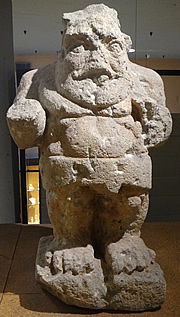

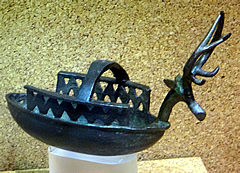
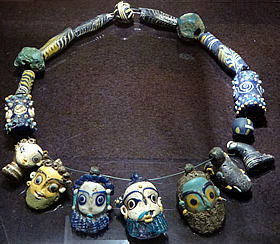
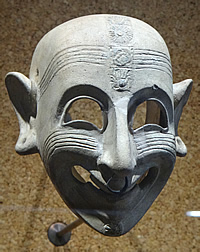
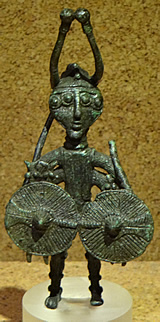
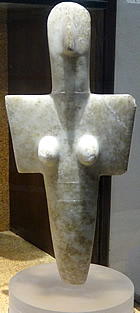

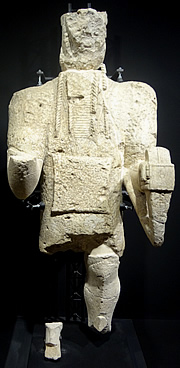
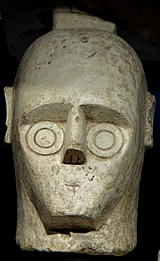
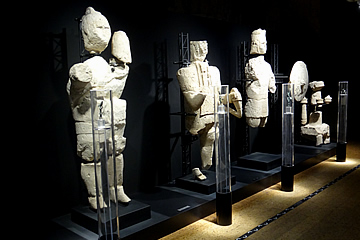
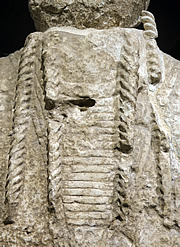
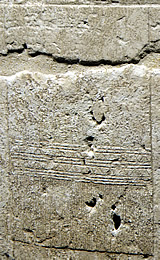
There are some magnificent remnants of large Nuraghic stone statues, the Giants of Mont'e Prama, discovered in 1974 along with models of nuraghe.
Several statues have been assembled from the fragments of over forty that were found. They stand up to two metres tall and include archers, warriors and boxers.
There is a statue of an archer with some fine carved detail.
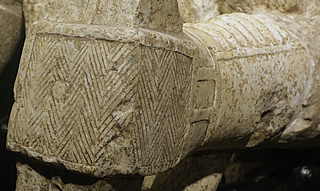
The heads with their dual concentric circle eyes are particularly arresting. These sculptures are Nuraghic but their exact age is unknown, certainly hundreds of years before the birth of Christ.
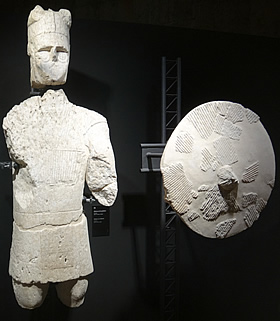
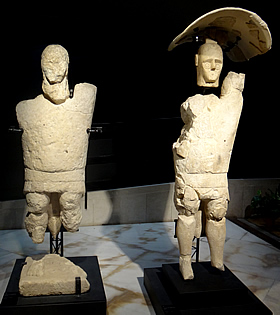
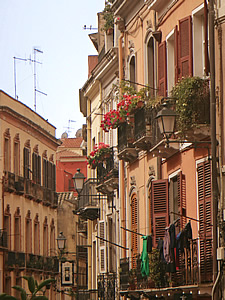
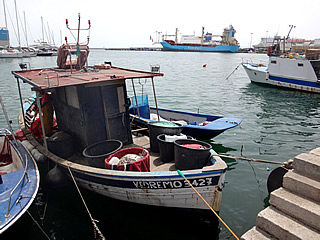

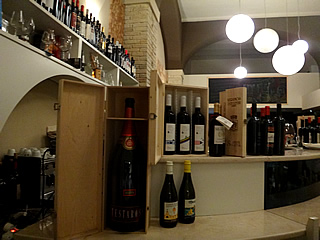
The area down to the harbour south of Castello is a maze of narrow streets, bounded by a couple of major roads: the Via Roma along the harbour and the Largo Carlo Felice on the west side heading north. It has many restaurants, cafés and bars, most with tables on the pavements and piazzas and we had some great food and wine here, notably in Inu Enoteca and Sapori di Sardegna.
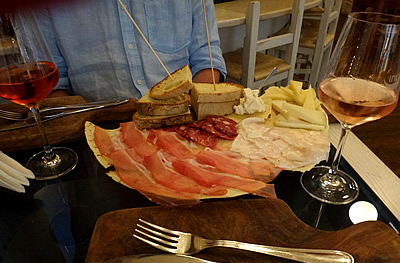
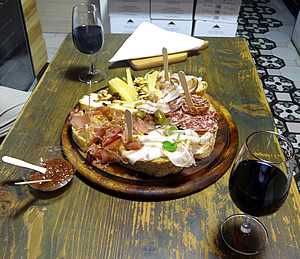
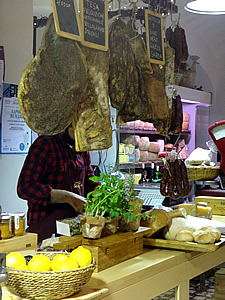
Sapori di Sardegna is a fabulous delicatessen selling Sardinian food, but they will also prepare a fantastic meat and cheese lunch for you. It was served with a fig "jam" and two glasses of Mamuthone Cannonau di Sardegna - a fabulous mouth-filling red. If you want to buy meats or cheeses they will vacuum-pack them for the trip home.
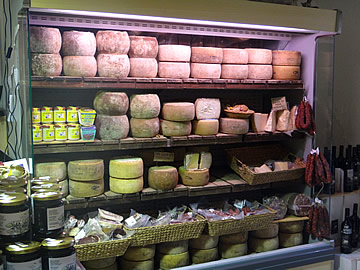
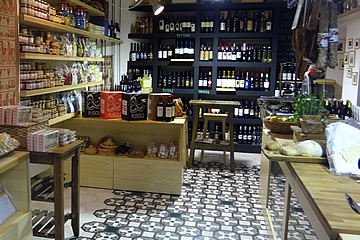
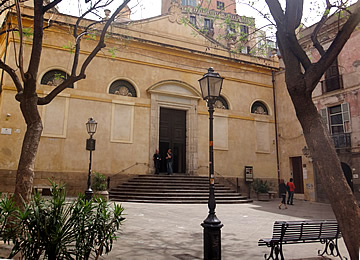
The church is renowned for the 17th century crypt and its images of Death but also has a rare example of an early baptismal font. This one dates from the fourth century and is a simple pit carved from the rock with steps leading down - baptism would have involved full immersion.
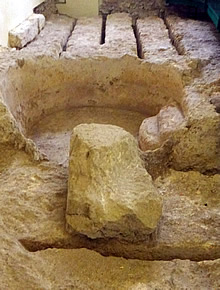
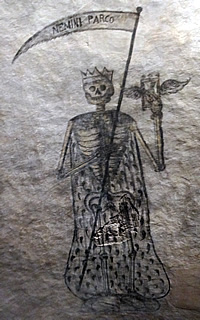
Steps lead down from the body of the church to a fair-sized barrel-vaulted room with a second room off to the side.
The larger room is painted in black and white with a great image of Death on the ceiling.
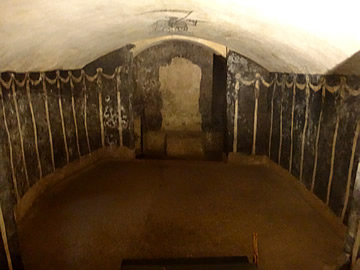
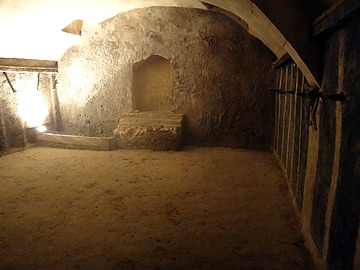
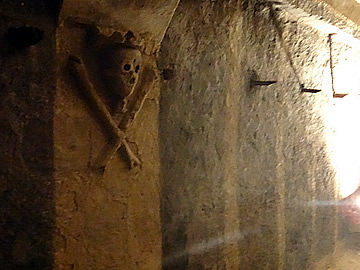
The second room is smaller, also with a vaulted ceiling, and has wonderful stone skull and crossbones sculptures.
